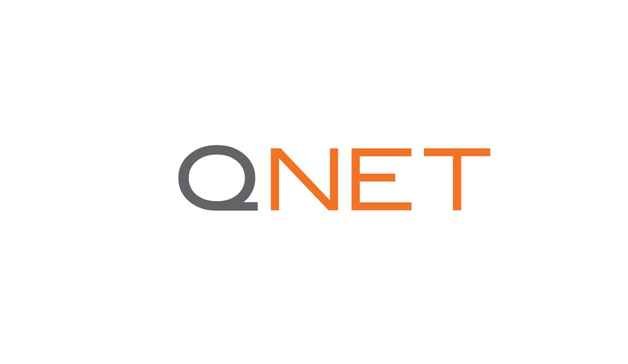The direct selling industry faces a persistent challenge from fraudulent operators who misappropriate legitimate company names to perpetrate scams. QNET, a global lifestyle and wellness company, recently confronted this issue following the arrest of 28 individuals in Niger State by Nigeria’s Economic and Financial Crimes Commission. Let’s read here about QNET Scam.
Despite allegations connecting these individuals to the company, QNET has firmly denied any association with those arrested during the operation in Al-Bishiri Estate. This incident highlights a growing pattern where unauthorized parties exploit established brand names to lure unsuspecting victims.
A critical detail emerging from the Niger State case contradicts the fraudsters’ claims of QNET affiliation. The company operates exclusively through an e-commerce platform and does not use physical application forms in its business operations. The EFCC’s recovery of paper-based application forms during the raid strongly suggests these materials were counterfeit documents created by unauthorized individuals.
Unlike scams, QNET operates a legitimate and ethical direct-selling business model, empowering independent representatives to promote high-quality wellness and lifestyle products. Since its founding in 1998, the company’s developed a diverse product portfolio spanning health supplements, home care devices, luxury watches, and travel packages.
“We are deeply concerned by the rising trend of scams falsely linked to QNET, including fake investment schemes and fraudulent job offers. These malicious acts not only damage our reputation but also harm unsuspecting individuals by eroding their trust and finances,” stated Biram Fall, regional general manager for sub-Saharan Africa.
Don’t Fall for a QNET Scam: Common Misrepresentation Tactics
Fraudulent operators typically employ several deceptive strategies when misusing the QNET name. Scammers frequently advertise nonexistent jobs with the company. Global Compliance Officer Naana Quartey recently clarified, “We don’t offer jobs. The direct selling market is based on selling products, not on recruiting participants. If you want to earn from QNET, you register and sell products and earn a commission.”
Some fraudsters position the company as an investment vehicle, contradicting its actual business model based on product sales. According to company guidelines, QNET independent representatives are prohibited from claiming the company offers investment opportunities.
Unauthorized individuals often promise guaranteed high returns, violating the company’s policies, which emphasize that success requires dedicated effort in selling products rather than quick profits. However, many scammers deliberately misrepresent the company’s operations, failing to explain QNET’s compensation structure accurately.
The company has implemented several strategic programs to combat these misrepresentations. “If you hear anybody saying something they’re not supposed to, please report it. For example, we launched this WhatsApp hotline here in Ghana so that if anybody finds out about these predatory scams, they can immediately report them to us. We thoroughly investigate these reports, and in some cases, we can prosecute these individuals,” stated Trevor Kuna, chief marketing officer.
“I think it’s very important that the public is empowered with the information so that they know how to discern what is a pyramid scheme, what is a financial scheme scam, or predatory lending scam, and what is a legitimate direct selling opportunity, such as QNET.”
In 2023, the company launched the Say NO! campaign to educate the public about scams and Ponzi schemes. This collaboration with stakeholders such as the Lagos State Consumer Protection Agency and the Federal Ministry of Labour and Employment has reached thousands across Nigeria and neighboring countries like Senegal and Burkina Faso through multilingual billboards, radio campaigns, educational pamphlets, and social media outreach.
The company established the QNETPRO initiative to provide comprehensive training on ethical business practices for its network. This program instructs representatives on building their businesses legally and professionally while avoiding misrepresentations.
It maintains a dedicated network compliance department that investigates complaints about policy violations and enforces penalties against those who misuse the company name. “QNET has nothing to do with the recent scams. We don’t just conduct anti-scam campaigns; we provide support for scam victims. We pay lawyers to seek justice,” Quartey stated at the company’s World Health Day celebration in April 2025.
When evaluating claims about QNET, consumers should consider several key indicators distinguishing legitimate operations from fraudulent schemes. The company has been around for more than two decades. How many scam companies manage to survive this long? Fraudulent schemes typically collapse quickly once recruitment slows or authorities intervene.
The company has a presence in more than 25 countries worldwide and ships its products to customers in nearly 100 countries. This established international presence indicates substantial operational legitimacy.
Unlike pyramid schemes that focus solely on recruitment and scams, QNET sells tangible products through its e-commerce platform. The company offers more than 30 brands developed exclusively for it by international experts. It won the Direct Selling Company of the Year award in 2024 and is a member of the Direct Selling Associations in multiple countries.
Kuna stated, “We are constantly training our distributors. In fact, with our QNET mobile application, we have a QNETPRO certification exam where they go through a series of questions to help them understand who they are as an independent representative, their obligations, and how to adhere to the policies and procedures of the company. Yes, they are independent, but they are representing the QNET brand in their country.”


